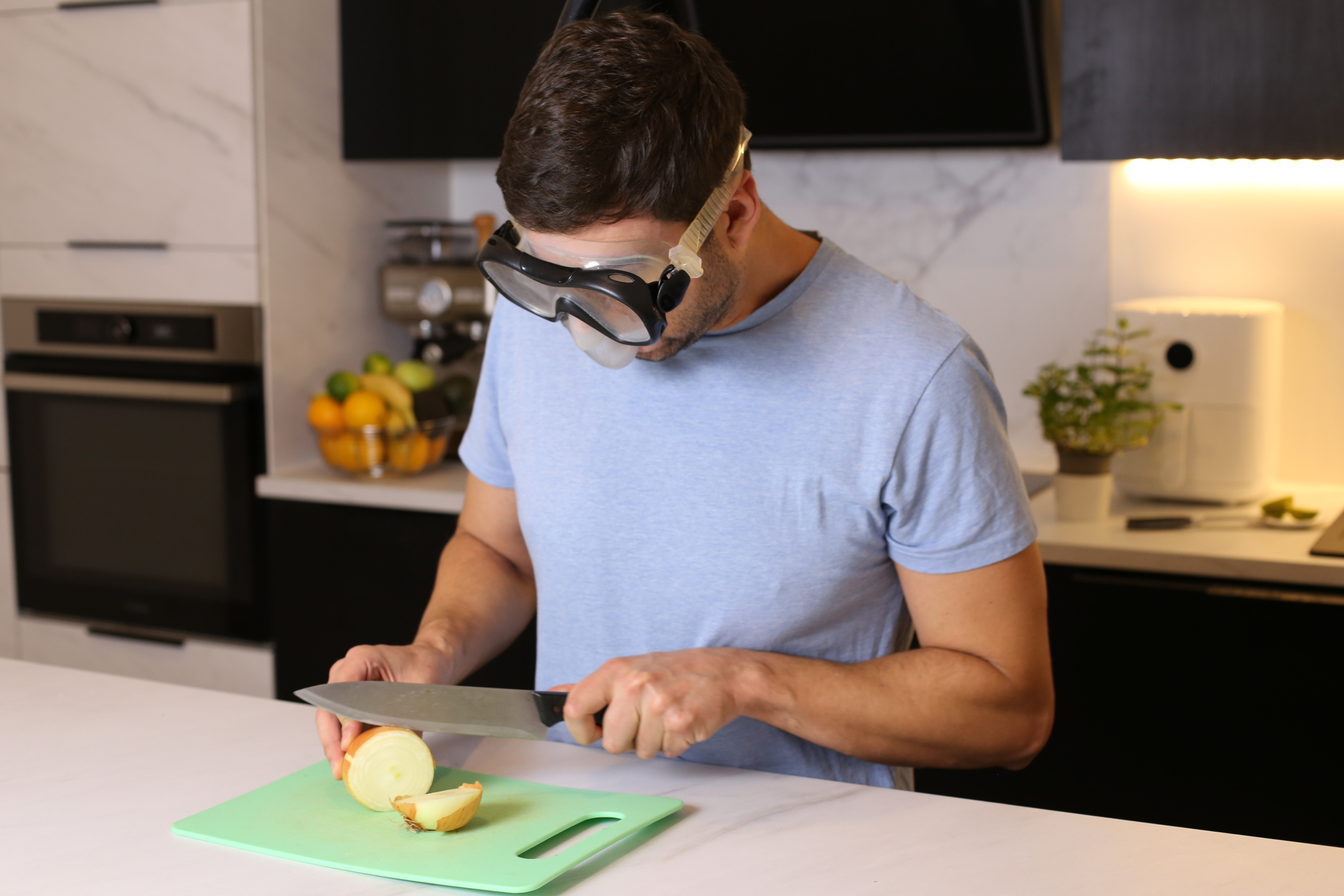Essential Kitchen Eye Safety Tips
Introduction
The kitchen, often called the heart of the home, is a bustling hub of activity where delicious meals are prepared and memories are made. However, amidst the sizzle of pans and the whirl of appliances, it’s crucial to prioritize eye safety. From hot oil splatters to sharp utensils, the kitchen presents various hazards that can lead to eye injuries if proper precautions are not taken. In this article, we’ll delve into essential kitchen eye safety tips to ensure you and your loved ones can cook with confidence and safeguard your vision.
Wear Protective Eyewear
Invest in a pair of safety glasses or goggles specifically designed for kitchen use. Choose eyewear that fits securely and provides full coverage around the eyes. Wear goggles with side shields to protect against splashes and flying debris.
Handle Hot Oil and Grease with Care
Hot sauces and liquids can bubble and splatter, posing a risk of eye injury. Use caution when stirring or pouring hot liquids, and consider using a lid or splatter guard to contain splashes. Maintain a safe distance from the stovetop to minimize the risk of accidental contact with bubbling sauces.
Use Caution When Handling Sharp Objects
Sharp utensils are indispensable in the kitchen but require careful handling to prevent accidents. Always cut away from your body and keep fingers clear of the blade’s path when using knives or scissors. Store sharp objects in a secure location when not in use to prevent accidental contact.
Beware of Spicy Residues
Spicy ingredients can leave residues on your fingers, which may inadvertently end up in your eyes. Wash your hands thoroughly after handling spicy foods to remove any residue that could irritate or damage your eyes. Avoid rubbing your eyes after handling spicy ingredients to prevent irritation and discomfort.
Prevent Slips and Falls
Wet or slippery floors and open cabinet doors pose a risk of slips and falls in the kitchen. Keep floors clean and dry, and promptly wipe up spills to minimize the risk of accidents. Close cabinet doors when not in use to prevent tripping hazards and potential eye injuries. Store appliances and utensils in designated areas when not in use to maintain a tidy workspace.
Handle Cleaning Chemicals with Care
Many household cleaners and chemicals used in the kitchen can cause serious eye injuries if not handled properly. Wear gloves and safety goggles when using cleaning products to protect against accidental splashes and spills. Store cleaning chemicals in a designated area away from food preparation areas to minimize the risk of exposure. Also rinse fruits and vegetables thoroughly to remove traces of pesticides or other chemicals.
Be Mindful of Airborne Irritants
Smoke, fumes, and airborne particles generated during cooking can irritate the eyes and impair vision. Use ventilation hoods and fans to remove smoke and cooking odors from the kitchen. Consider wearing a dust mask or respirator when working with strong-smelling ingredients or spices.
Know When to Seek Medical Attention
Despite taking precautions, accidents can still happen in the kitchen. If an eye injury occurs, it’s crucial to seek prompt medical attention from a qualified healthcare professional. While it may be tempting to try home remedies for minor eye injuries, such as placing raw steak on a black eye, these methods are not safe or effective. Avoid rubbing the affected eye and refrain from attempting to remove foreign objects embedded in the eye; leave that to a medical professional, regardless of severity, to ensure proper treatment and prevent further damage.
Conclusion
By incorporating these comprehensive kitchen eye safety tips into your cooking routine, you can minimize the risk of eye injuries and enjoy your time in the kitchen with confidence. Remember, protecting your vision is essential, and simple precautions can go a long way in preventing accidents and preserving your eyesight for years to come.
Summary
By implementing these comprehensive kitchen eye safety tips, you can minimize the risk of eye injuries while cooking and enjoy your culinary adventures with confidence. Remember to stay vigilant and prioritize eye safety in every aspect of your kitchen routine to safeguard your vision health in the heart of your home.
World Eye Care Foundation’s eyecare.live brings you the latest information from various industry sources and experts in eye health and vision care. Please consult with your eye care provider for more general information and specific eye conditions. We do not provide any medical advice, suggestions or recommendations in any health conditions.
Commonly Asked Questions
High-quality safety glasses or goggles that meet ANSI standards for impact resistance are recommended.
Use a splatter guard or lid, and maintain a safe distance from the stovetop.
Rinse the affected eye with clean water for at least 15 minutes and seek medical attention.
Use ventilation hoods and fans to remove smoke and cooking odors from the kitchen.
Use long-handled utensils and oven mitts to avoid direct contact with hot surfaces and liquids.
Yes, exposure to hot oil splatters, sharp objects, and chemicals can cause serious eye injuries if not properly protected.
Yes, children should be supervised closely and taught proper kitchen safety practices from a young age.
Contact Poison Control immediately and follow their instructions.
Avoid rubbing the affected eye and seek medical attention if necessary.
Replace safety glasses or goggles as needed if they become damaged or scratched, and ensure a proper fit for optimal protection.
news via inbox
Subscribe here to get latest updates !







